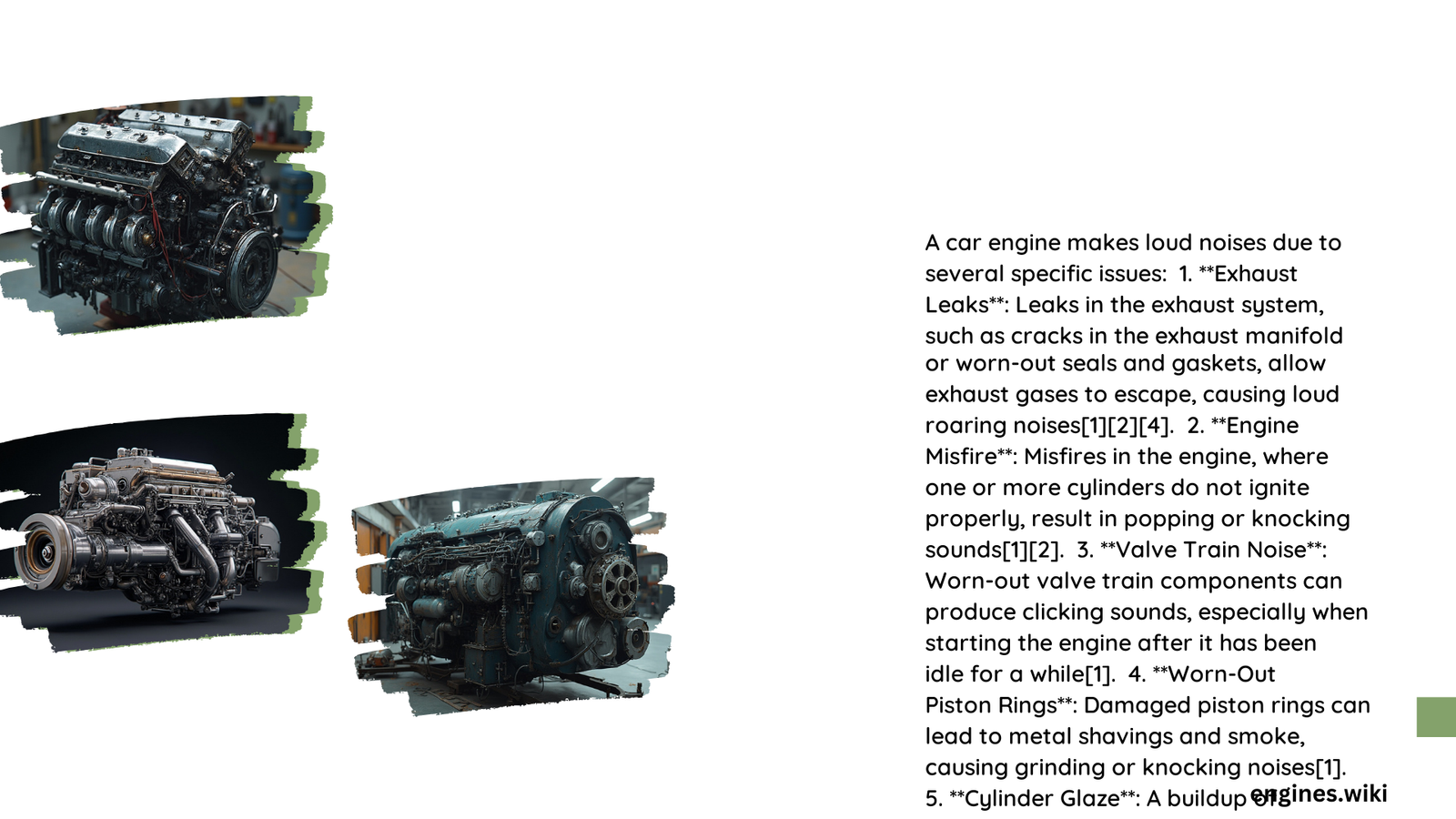Car engines can produce various loud noises that signal potential mechanical problems, ranging from minor issues to critical system failures. Understanding these sounds is crucial for vehicle owners to prevent expensive repairs and maintain optimal engine performance. Loud engine noises often indicate underlying mechanical stress, component wear, or systemic problems that require immediate professional attention and diagnostic evaluation.
What Causes Loud Noises in Car Engines?
Why Do Mechanical Components Create Engine Sounds?
Mechanical components in car engines generate noise through multiple interconnected systems. The primary sources of loud engine sounds include:
Combustion Process Irregularities
- Misfiring Cylinders: Uneven fuel combustion creates rhythmic knocking sounds
- Detonation Events: Premature fuel ignition produces sharp pinging noises
- Timing Inconsistencies: Improper valve synchronization generates tapping sounds
| Noise Type | Potential Cause | Severity Level |
|---|---|---|
| Knocking | Incorrect fuel octane | High Risk |
| Tapping | Worn valve train components | Medium Risk |
| Pinging | Carbon buildup | Moderate Risk |
What Role Does the Exhaust System Play in Engine Noise?
Exhaust systems significantly contribute to engine sound characteristics:
- Exhaust Leak Indicators
- Hissing sounds near manifold
- Roaring noises from damaged pipes
-
Increased volume during acceleration
-
Back Pressure Complications
- Restricted catalytic converters
- Clogged muffler systems
- Compromised exhaust pipe integrity
How Can Worn Parts Produce Loud Sounds?
Critical Component Wear Signals
- Belt Deterioration: Produces high-pitched squealing
- Bearing Damage: Creates grinding metallic noises
- Pulley Misalignment: Generates rhythmic rattling sounds
What Diagnostic Techniques Reveal Engine Noise Sources?
Professional mechanics employ multiple strategies:
- Visual component inspection
- Acoustic stethoscope analysis
- Compression pressure testing
- Advanced diagnostic scanning
- Vibration frequency measurements
Recommended Maintenance Strategies
Preventive Actions:
– Regular oil changes
– Timely spark plug replacement
– Consistent exhaust system checks
– Annual comprehensive engine diagnostics
Cost Implications of Ignoring Engine Noises
| Noise Complexity | Potential Repair Cost | Risk Level |
|---|---|---|
| Minor Sounds | $100 – $500 | Low |
| Moderate Issues | $500 – $2,000 | Medium |
| Severe Complications | $2,000 – $5,000+ | High |
Conclusion

Understanding why car engines make loud noises requires systematic diagnostic approach, technical knowledge, and proactive maintenance. Vehicle owners should never ignore persistent or unusual engine sounds, as early intervention can prevent catastrophic mechanical failures.
Reference:
- https://www.toyotavacaville.com/blog/what-causes-a-vehicles-engine-to-make-noise/
- https://aamcocentralflorida.com/3-reasons-why-your-car-may-sound-louder-than-normal/
- https://barrysautobody.com/10-engine-noises-that-require-immediate-attention/
